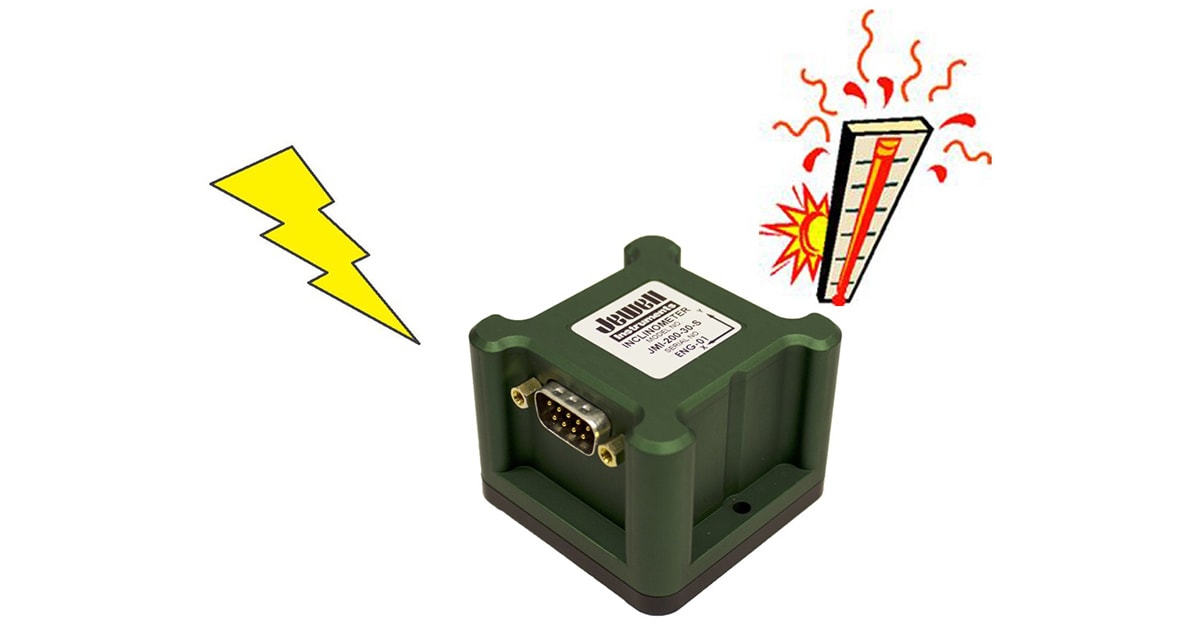MEMS has emerged as a cost-effective and high precision solution to some pretty demanding projects, including many industrial applications. Its accuracy can hold up to the test, but how about its durability? Will it be able to withstand the temperature or shock of your project?
Temperature Range
MEMS inclinometers and accelerometers bear a favorable temperature range of -40º to +85ºC. Most environments such as manufacturing automation deal with some extreme temperatures which will fit into this window. The LSOC series inclinometer has been used to provide taper measurements for continuous casting control in the metals processing industry. This is a scenario that entails extreme temperatures that are manageable for the LSOC which has a temperature range of -18º to +71ºC. The range is pretty similar, but the MEMS has the upper hand in surviving the heat.
Shock & Vibration
These sensors can also hold their own against some shock. They may not be as rugged in this department as a forced balance sensor, but MEMS inclinometers have a vibration resistance of 10grms @ 10-1000Hz and the accelerometers bear a shock resistance of 100G. So you may not use them for some highly shocking scenarios such as military applications, but they can hold up to industrial measurement and control, drilling equipment, platform leveling, and even some geotechnical monitoring.
Seal
IP67 is the rating on most MEMS inclinometers and accelerometers. That is an improvement from a few forced balance and electrolytic models that include an IP65 rating. With this housing, they can be submersible in shallow water for temporary periods. This allows them to monitor the offshore or subsea pitch and roll applications.
Every sensor line has its own advantages and limitations and the requirements for your application will dictate which technology will be necessary. If you’re still not sure which sensor is best for you, contact us and we will construct a solution that is tailored for your project.
